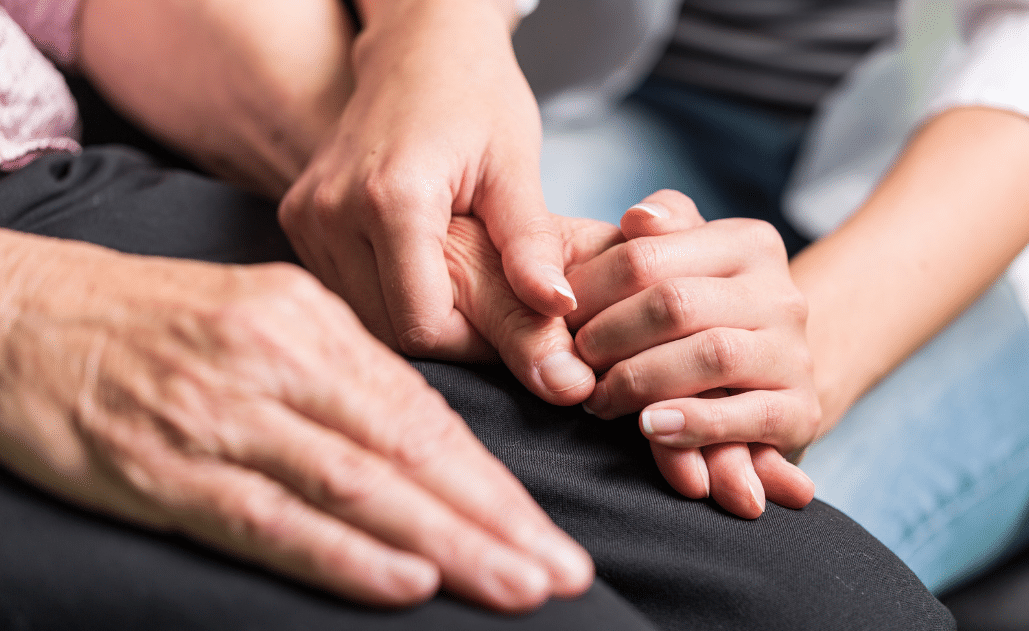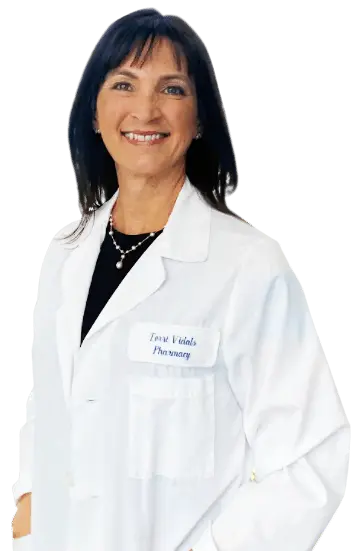It was never in your career plan – not in your wildest dreams. You promised yourself you’d stay true to your solemn healthcare pledge to “do no harm” – which certainly would include not diverting a controlled substance.
Turns out you were wrong.
Putting aside the plethora of possible triggers for a moment – including mounting stress levels, relational challenges at home, struggles in your past, and a present, overwhelming desire for escape or comfort – you assess the fallout:
You’ve not only harmed yourself, you’ve harmed your entire team – broken their trust. Most of all, you’ve harmed your patients who suffered needlessly without their meds.
How will you come to terms with it all? It may be hard to see at the moment, but there’s a path of recovery taking shape before you.
How clearly you see that path depends on how you see yourself, right now.
How do you see yourself?
For starters, think about the professional pride you’ve maintained for so long. Maybe it never occurred to you, but it can actually be a two-edged sword – one that cuts both ways.
Here’s what I mean:
On the “positive edge,” pride in your career aspirations has served you well. It has helped to pare away things like shirking your duties and shoddy practice.
Along the way, you’ve engendered trust, reliability as a team player, and a proactive approach that helped your patients flourish. You felt a deep sense of satisfaction when they said “You were there for me in my hour of need.”
On the “negative edge,” you also learned that it’s easy to rationalize: “It’s a war out there; I deserve this.” You started cutting corners here and there, pocketing a few meds and justifying it for “the greater good.” Maybe you even thought, “I’m tempted to try it once, just to see what it feels like – a little can’t hurt.”
So you took that step and allowed yourself to cross that line you vowed you’d never cross. You didn’t expect the ground to give way beneath you.
What will you say to yourself?
At this point, what you say to yourself next makes all the difference:
- “It’s not that big a deal. The hospital won’t miss it, no one will be impacted.” (Denial)
- “Just pretend that everything is fine. Keep smiling. No one will suspect.” (Hiding)
- “How could I? This confirms my deepest fears – that I’m worthless.” (Self-condemnation)
- “I can’t reveal this to anyone, I could lose everything – my reputation; my license; my livelihood!” (Self-protection)
Truly, this negative edge of professional pride can cut deep, overpowering all the positives.
And yet, know that hope is real. It starts with an acknowledgment: the reality of “pride comes before a fall” is actually no stranger to any of us.
True, in the midst of pride or swirling shame, it can be excruciating to take a good, hard look in the mirror and admit that we’ve blown it. We don’t have it all together, even when professional pride says “we should,” and urges us to pretend that we do.
This admission about ourselves is a necessary first step – part of conducting a “searching and fearless moral inventory,” as AA puts it.
Staying mired in self-condemnation won’t help. Choosing to stay there can actually keep us from the humility necessary for change, since we’ll be secretly tempted to make sense of our actions and justify. The struggle can feel so bad, we may even want to use again.
But here’s the good news: when we stop all the justifications and rationalizations, and are willing to confess that we’re helpless to change on our own – we take a bold step toward real healing and recovery. Losing everything (except your pride) doesn’t have to be the way the story ends.
Healthcare has begun to realize that the care it spends so much energy on for patients must also extend to the caregiver. There are resources for you, and there is hope!
(See below to find recovery resources near you!)
Recovery Resources:
1. Wisconsin Peer Alliance for Nurses (WisPAN): https://wipeeralliance.org/ wispan2021@gmail.com
2. National Suicide Prevention Lifeline: 988 https://suicidepreventionlifeline.org
3. National Council of State Boards of Nursing (NCSBN) Alternative to Discipline Programs for SUD:
https://www.ncsbn.org/alternative-to-discipline.htm
4. Health Professionals in Recovery Facebook Page: https://www.facebook.com/groups/1461031774049631/
5. Minnesota Nursing Peer Support Network https://www.npsnetwork-mn.org/
6. SMART Recovery Forum for Medical & Mental Health Professionals in Recovery:
https://www.smartrecovery.org/community/forums/31-Medical-amp-Mental-Health-Professionals-in-Recovery
7. InTheRooms, a global recovery site offering virtual support meetings: https://www.intherooms.com/home/
8. International Doctors in A.A.: https://www.idaa.org/
9. 12-Step programs:
• Alcoholics Anonymous or A.A. https://www.aa.org/
• Cocaine Anonymous or C.A. https://ca.org/
• Gambler’s Anonymous or G.A. https://www.gamblersanonymous.org/
• Heroin Anonymous or H.A. https://heroinanonymous.org/
• Marijuana Anonymous or M.A. https://marijuana-anonymous.org/
• Narcotics Anonymous or N.A. https://na.org/
• Overeaters Anonymous or O.A. https://oa.org/
• Adult Children of Alcoholics or A.C.O.A. https://adultchildren.org/
• Al-Anon https://al-anon.org/
10. Recovery Dharma: https://recoverydharma.org/
11. Secular Organizations for Sobriety (SOS): https://www.sossobriety.org
12. LifeRing Secular Recovery: https://lifering.org
13. The Other Bar: https://otherbar.org/, a network of recovering lawyers and judges
14. Recovery 911 Online (all healthcare professionals welcome), Fridays at 8pm Eastern Register
here: https://us02web.zoom.us/meeting/register/tZckc-yvqT0qEtId0f82RPgBTn5XQHruFSgF
15. Organizations have compiled resources to help healthcare professionals cope with stress and improve resilience:
o CDC: Support for Healthcare Workers
o American Medical Association: Managing Mental Health During COVID-19
o Substance Abuse and Mental Health Services Administration (SAMHSA) Tips for Healthcare Professionals
16. Second Victim Support: https://secondvictim.co.uk/
17. Dr. Lorna Breen Foundation: https://drlornabreen.org
18. An Unlikely Addict: http://www.unlikelyaddict.com/
19. Re/entry, A Guide for Nurses dealing with Substance Use Disorder: re/entry a guide for nurses dealing with SUD
20. Impaired, A Nurse’s Story of Addiction and Recovery
21. Parkdale Center, Individualized treatment for professionals.






